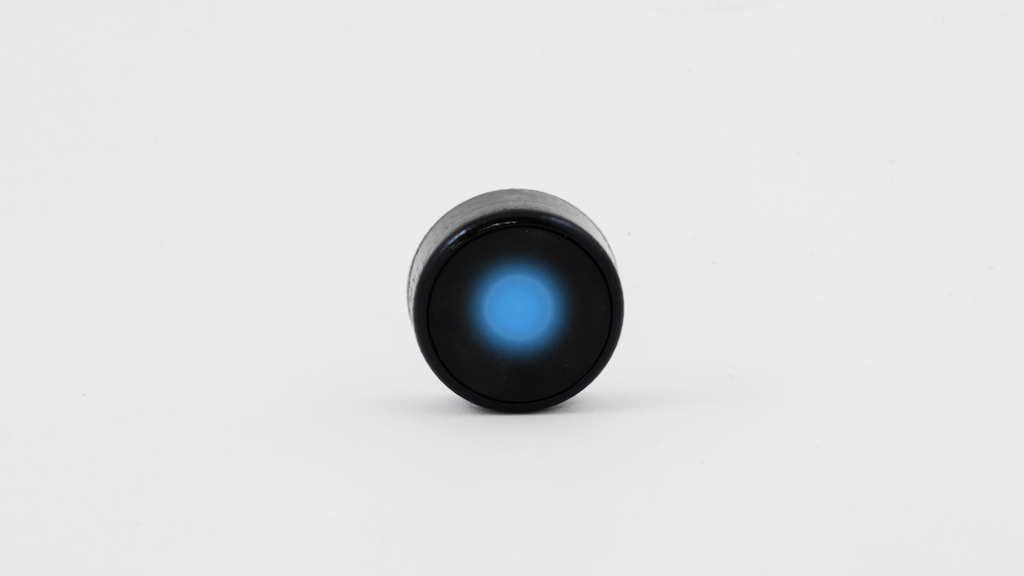SCET alums build a Bluetooth beacon to make your push notifications more relevant

Most of us have a love-hate relationship with the push notification (i.e. the little messages that pop up on our smart phone’s lock screen). It usually goes something like this: our phone vibrates or the LED blinks, which triggers us to check our phone to see what the latest message is. The best case might be a nice text from a friend, but more than often we are bombarded with yet another email, an irrelevant article, or a promotional offer from a game we played once. What if the messages that keep us all checking our smartphones every 5 minutes were much more helpful?
That is the hope of five Berkeley students: Kunal Chaudhary (Business and Computer Science ’17), Rahul Ramakrishnan (Business and EECS ’17), Grant Empey (Computer Science and Philosophy ’18), Rishabh Pariksh (Computer Science ’18), Anuj Chaudhary (B.S. in Mechanical Engineering ’07), and their company Iota Labs. With their new Internet of Things (IoT) product called Dot, a 1 inch circular Bluetooth-powered beacon that you can stick anywhere, the students want to make your phone’s messages matter.

“We’ve been working in this space of networks and IoT for some time now,” said Kunal Chaudhary, who co-founded Iota Labs in 2015 along with a fellow alum of the Certificate in Entrepreneurship & Technology program from the Sutardja Center, Rahul Ramakrishnan, “We got the idea for Dot when we had a discussion about contextualization in computers and no-interface design. After realizing that precise location tracking was a critical piece missing from making our computers smarter, we came up with Dot. Dot solves a very simple problem. It takes people’s daily information and organizes it by the right place and time. We make getting relevant information easy.”
For example, place a dot in your office and create digital post-its that stay behind when you leave work and greet you when you arrive in the morning. Add a dot to the living room and resume Netflix right where you left off when you sit down on the couch. Put a dot on the fridge, and create a reminder to remove expired food or create an inventory of what’s inside. Besides using push notifications to communicate, the Dot also contains an LED that changes color when a status has changed (e.g. from green to red when the milk has expired in the fridge).
“Dot seeks to be a simple glue in the IoT space. It’s not just a normal gadget that you can control from your smartphone. It is a physical marker for the digital world,” said Chaudhary, “Very few IoT devices try to add new, meaningful information into the IoT ecosystem. We make all other IoT devices more useful by fundamentally changing how we interact with our smartphone.”
Dot will not only come with an app launcher to help you start the right app in the right location (e.g. Netflix on the couch), but will also integrate with existing devices (Chromecast, Nest, Amazon Echo, Roomba, and others). And if the Dot doesn’t work for the use case you imagine? Well, the developers thought of that too — they will release an open API for the device to enable iOS, Android, and web developers to use their imagination to make the Dot relevant in even more situations.
And clearly the public is seeing the value in the tiny beacon. At the time of writing this article, Dot has already raised $95k on Kickstarter (with an original goal of $20k). With a Dot costing just $20, it’s easy to see why early adopters are investing to help make their smartphones even more brilliant. Should the goal reach $100k by the end of the Kickstarter campaign, the founders are promising to offer Dots in three new colors when the product is released in March 2017: Leaf, Tangerine, and Cobalt.
Besides earning the Certificate in Entrepreneurship & Technology, the founders credit the Sutardja Center’s Ken Singer and Eugene Noh, the CITRIS Foundry, and The House, the newly formed Berkeley institute dedicated to supporting Berkeley startups for their mentorship and support in building the Dot.
For more information, visit the Kickstarter page and view the promo video below.
